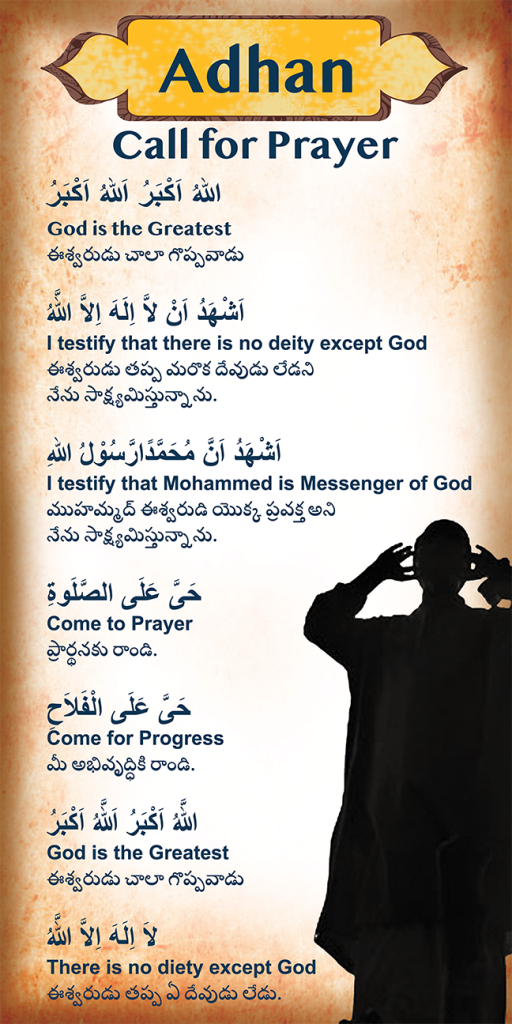
Mimbar, in Islam, the pulpit from which the sermon (khutbah) is delivered. In its simplest form the minbar is a platform with three steps. Often it is constructed as a domed box at the top of a staircase and is reached through a doorway that can be closed.
Imam (“leader,” “model”), in a general sense, one who leads Muslim worshippers in prayer. In a global sense, imam is used to refer to the head of the Muslim community. The title is found in the Qurʾān several times to refer to leaders and to Abraham. The origin and basis of the office of imam was conceived differently by various sections of the Muslim community.
Muazzin, in Islam, the official who proclaims the call to prayer (adhān) on Friday for the public worship and the call to the daily prayer (ṣalāt) five times a day, at dawn, noon, midafternoon, sunset, and nightfall. The Muslims use the human voice. The muazzin is the servant of the mosque and is chosen for his good character. He stands either at the door or side of a small mosque or on the minaret (manāra) of a large one. He faces each of the four compass directions in turn: east, west, north, and south. To each direction he loudly says: “Allah is most great. I testify that there is no God but Allah. I testify that Muhammad is the prophet of Allah. Come to prayer. Come to salvation. Allah is most great. There is no God but Allah.” Many mosques have installed electronic recordings of the call to prayer, and amplifiers have displaced the muazzin.
Every Masjid has a library to read various Islamic literature including Qur'an, Hadith, Seerat of Prophets, Sahaba and more.
